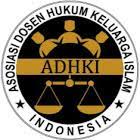Child Adoption and Custody in Islamic Law: A Meta-Analysis And Systematic Review
Keywords:
Islamic Law, Child Adoption, Kafalah, Meta-Analysis, Systematic ReviewAbstract
Child adoption remains a complex and sensitive issue within Islamic legal discourse, particularly due to its tension with Western legal frameworks that often permit full adoptive rights, including name changes and inheritance. This study addresses the central problem: how can Islamic law reconcile child protection needs with religious norms that prohibit altering a child’s lineage (nasab)? The research aims to investigate how the concept of kafalah in Islamic jurisprudence serves as an alternative to formal adoption and how Muslim-majority countries navigate the duality between sharia and civil legal systems. Employing a meta-analysis and systematic review approach based on PRISMA guidelines, this study synthesizes 42 peer-reviewed articles from the past decade sourced from Scopus, PubMed, ScienceDirect, Springer, and Wiley. Inclusion criteria focused on works discussing Islamic legal perspectives, national law, and practical implementations of adoption or child custody. The results reveal five dominant themes: the incompatibility of Western-style adoption with classical Islamic fiqh, kafalah as a legal-religious framework, the roles of guardianship (wali), financial support (nafaqah), and inheritance, the legal challenges posed by dual legal systems, and the emerging hybrid models in countries such as Morocco and Indonesia. The findings suggest that while Islamic law strictly preserves genealogical integrity, there is room for innovation through kafalah-based mechanisms that ensure child welfare. This study contributes to both scholarly debate and legal reform by offering an evidence-based understanding of how Islamic norms and child rights can be harmonized in contemporary legal systems.
Downloads
References
Al-Alwani, T. J. (2015). The Ethics of Disagreement in Islam. International Institute of Islamic Thought.
Al-Dawoody, A. (2018). Islamic law and international conventions on child rights: A comparative study. Journal of Islamic Law and Culture, 20(1), 45–66.
Ali, S. S. (2012). Adoption and child welfare in Islam: Annotated bibliography and literature review. University of Warwick.
Bainham, A. (2005). Children: The modern law (3rd ed.). Bristol: Jordans Publishing.
Bunting, A. (2004). Adoption, Islam, and the best interests of the child: A comparative perspective. International Journal of Law, Policy and the Family, 18(1), 1–29. https://doi.org/10.1093/lawfam/18.1.1
El-Gindy, A. (2017). Child protection in Islamic jurisprudence: A comparative perspective. Journal of Religion and Health, 56(6), 2023–2037. https://doi.org/10.1007/s10943-017-0375-2
Lahlou, K. (2015). Kafala in Islamic family law: Legal frameworks and moral considerations. The Muslim World, 105(2), 220–239. https://doi.org/10.1111/muwo.12092
Moher, D., Liberati, A., Tetzlaff, J., Altman, D. G., & The PRISMA Group. (2009). Preferred reporting items for systematic reviews and meta-analyses: The PRISMA statement. PLoS Med, 6(7), e1000097. https://doi.org/10.1371/journal.pmed.1000097.
Prasetia, Y., & Muhamad Hasan Sebyar. (2024). Legal Aspects of the Rights of Children from Siri Marriages. Jurnal Hukum Keluarga, 1(01), 9–17. https://doi.org/10.63731/jhk.v1i01.1
Rahmah, N. (2021). Legal protection of adopted children in Islamic law and Indonesian law: A comparative study. Indonesian Journal of Islamic Family Law, 3(1)
Rahman, H., & Ahmad, S. (2020). Islamic principles and the legal framework of child guardianship in Muslim countries. Arab Law Quarterly, 34(3).
sebyar, M. H. (2024). Adopted Children and Their Relationship with Legacy : Perspectives of Ulama and KHI . Jurnal Hukum Keluarga, 1(01), 26–36. https://doi.org/10.63731/jhk.v1i01.5
UNICEF. (2020). Children without parental care: Global statistics and trends. United Nations Children’s Fund.
Wahyuni, D. (2019). Adoption in Indonesia: Between Islamic jurisprudence and national law. Indonesian Journal of Islamic Family Law, 4(1).
Downloads
Published
How to Cite
Issue
Section
License
Copyright (c) 2025 Jurnal Hukum Keluarga

This work is licensed under a Creative Commons Attribution-NonCommercial-ShareAlike 4.0 International License.












